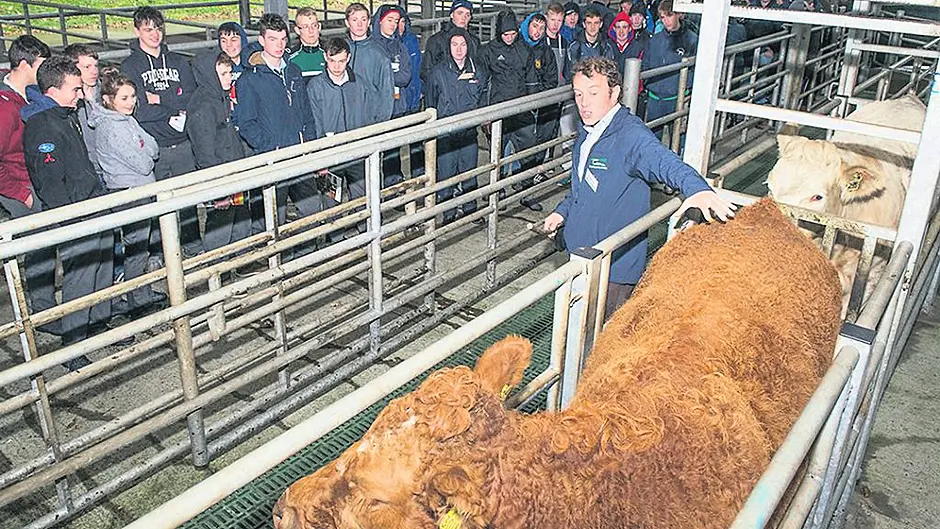A terrific choice is now available to those wishing to pursue agricultural training.
A TERRIFIC choice is now available to those wishing to pursue agricultural training.
Presently many are considering their options for 2020.
The Green Certificate is an established course of choice for farmer training. Teagasc is the leading provider. It is a recognised National Level 6 award.
Outlined below is a description of the course, its benefits and the options for completing it.
Updating of the course took place in 2018. The course is completed through delivering core farmer training subjects.
Benefits to completing it include:
• Stamp duty exemption
• Full relief is available for a family transfer to an under 35 year old recipient with a Green Cert qualification
• Gift tax relief.
One possible relief from gift tax is based on having active farmer status. One approach to securing this is by completing the Green Certificate.
Single farm benefits in terms of reserve and top-up payments.Under the present Common Agricultural Policy (CAP) programme payments are available to new Entrants to farming. This can involve receiving entitlements or having the value of inherited entitlements raised to the national average.
A top up payment is also available to those with inherited entitlements under the Young Framer scheme. A Green Certificate or equivalent qualification is one of the qualifying criteria.
Succession plan tax incentives as part of starting a partnership can also be considered by award holders.
Cost-benefit
A Teagasc study (Heanue, O’Donoghue 2014) has taken place on the return to those who complete the Green Certificate.
A cost in terms of time and course costs is factored in. Financial benefits are established. This study looks at the net return to the individual as well as the return to the community in which they farm.
Results show a 9% return to the individual and a 25% return to their community. Family farm income per hectare was consistently between 1.3 and 1.5 times greater for those with formal education as opposed to no formal education.
Green Certificate assists in providing a mix of theoretical and practical training. This serves to complement and enhance the student’s own knowledge and abilities.
A key emphasis of the Green Cert is visiting established farmers. Presently, two Skibbereen farmers welcome in students. Students engage with them in the day to day successful running of their farm.
Course options
Options for attaining the Green Cert are available.
Option 1 – Over-23 year-olds have the option of completing it through a part-time course. Locally, the course is delivered through the Macroom and Skibbereen Teagasc centres.
Practical and information technology aspects of the course are delivered through spending some time at Clonakilty Agricultural College.
One graduate of the course has described it as providing some explanations for key farming practices. Courses typically involve attending for a day and an evening a week over the academic year. A new course is planned for February 2020.
An information meeting for this new course is planned for end of November 2019. Its intention is to set out in detail what participants can expect if they enrol in the course.
Detail will be presented to the group while allowing plenty of opportunity for one to one discussion. A graduate of the course will give his viewpoint. Details will be advertised here and will be available at the local Teagasc offices.
Options 2 – A distance learning course facilitates those who have an existing major award at level 6. Locally, this course is delivered through Clonakilty Agricultural College.
Option 3 – A full-time option of completing the Green Cert is available through attending an agricultural college with Clonakilty again being the local option.
All Teagasc offices will accept people’s course queries or expressions of interest. Teasing out your options is often a very important part of the contact.
Education Officers Pat Flannery, Macroom office, 026-41604, and Murt Fitzgerald, Skibbereen, 028-21888, can assist with considering all options. The Teagasc website also provides information and contact details.
CSO (Central Statistics Office) data indicate that two-thirds of those farming do not have full agricultural training though this is improving with each successive generation. However, we must continue to prioritise this improvement.
• Pat Flannery is a Teagasc education officer for West Cork, based at the Teagasc office in Macroom.







